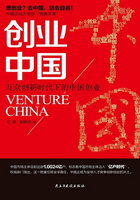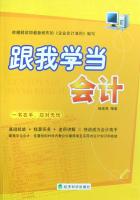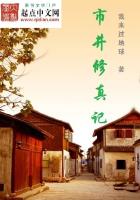This provision, intended to restrict partial repossession of land by the landowner, was apparently drafted from the brief experience of share restriction conducted earlier in mainland China. However, the promised limitation was not imposed until the Land-to-the-Tiller program began in 1953. Furthermore, when, in April 1949, the government urged the renegotiation of contracts to lower rental percentages the landowners could have reduced land size for tenant farms at will. Finally, the landowner could increase tenant inputs without reducing land size to attain the same result.
To conclude, it is evident that the theory of share tenancy implies increased farming intensity as a result of the share restriction's being enforced in 1949. Because of the new legislation's coming into effect in 1952, the hypothesis testing in the following chapters will be confined mainly to four years. The year 1948 will be used as the base year before the legal share constraint, and the three years from 1949 to 1951 will represent the years after. It is in these three years that the enforcement of the share restriction was strong and evident, that compensating payments and right transfers did not take place to any significant extent to restore the initial resource use under farm tenancy, and that we are certain that adjustments of farming intensity were not restricted.
[1]. Without compensating payments or other devices such as licensing the right to lease land, the equilibrium of this fixed rent control would be unclear; and the possible outcomes would be several and so varied that we could be certain of none.
[2]. See Sidney Klein, The Pattern of Land Tenure Reform in East Asia after World War II (New York: Bookman Associates, 1958), p. 77.
[3]. See Cheng Chen, An Approach to China's Land Reform (Taipei: Cheng Chung Book Company, 1951), pp. 24-25.
[4]. See Sino-American Joint Commission on Rural Reconstruction, "JCRR Annual Reports on Land Reform in the Republic of China," mimeographed (Taipei: Farmers' Service Division, 1965), p. 9. Italics added. See also JCRR, General Report, vols. 1 and 2 (Taipei: 1950 and 1952).
[5]. See chapter 5 of this study.
[6]. Art. 2, in Hui-sun Tang, Land Reform in Free China (Taipei: JCRR, 1954), p. 221. In Tang's translation, one error of substance has been found and corrected by the present author, that is, "main crop" should read "main crops." In Chinese, when the exact number is not specified, plural is implied, and there is no numerical specification in the original version. As will become clear later, the lawmaker meant to say one "main" crop per acre of land per period of time.
[7]. See JCRR, "Annual Reports," p. 20-26.
[8]. Chen, An Approach to China's Land Reform, p. 14. In other sources it is evident that the procedure of "reporting" the actual yield was frequently omitted if share disputes did not arise.
[9]. See chapter 5 of this study.
[10]. Perhaps the translation from the crops "chiefly wanted" to "main" is somewhat misleading.
[11]. Cheng Chen, Records of Taiwan Land Reform (Taipei: Chung Hwa Book Company, 1961), p. 181.
[12]. See Chen, An Approach to China's Land Reform, p. 29.
[13]. See Cheng Chen, Land Reform in Taiwan (Taipei: China Publishing Co., 1961), p. 309.
[14]. Art. 2, in Tang, Land Reform in Free China, p. 222. Note that this article was later deleted in the act of 1951.
D.A Digression on Property Right Assignment and Resource Allocation
In this section I seek to discuss more fundamentally the theoretical results of the rental share restriction in terms of property rights.
Let me introduce an operational concept for the present discussion: an individual's right to use a resource exclusively and his right to derive unattenuated income (or rental annuity) from the use are mutually implied. In other words, given an exclusive right to use a resource (that is, the property right held by an individual is independent of other people's action), the right to derive income therefrom is also exclusive. "Income" is here used as a comprehensive term to include the flows of both pecuniary and nonpecuniary benefits. Transferability of the property right in the marketplace is essential in order to realize the maximum value of the resource. Assume away transaction cost problems, and competition for the ownership right will reveal that maximum value.
An attenuation of the right to obtain income from a private property resource by a legal authority may be enforced on a percentage basis or on a fixed price basis. In the latter case, available economic theory yields an equilibrium (and hence a set of predictable behavior with respect to resource use) only if there are other associated devices such as licensing or rationing. On the other hand, income attenuation on a percentage basis usually yields a specifiable set of constraints which permits a theoretical solution, because the dimensions restricted allow changes in choices among options predictable by the theory of choice.
Attenuating the right to derive income from resource use on a percentage basis, with the diminishing portion of income unappropriated and unassigned to some specific individual(s), will produce the same effects as attenuating the exclusive right to use the resource.[1] Consider the rental share restriction in Taiwan. Under a free market, a landowner is entitled to receive a portion, r, of the annual yield as income for his exclusive right over the use of his land. Under the share constraint,
, and without input adjustment, the landowner's income from his resource ownership is reduced by (r—
)/r percent. We ask: to whom is assigned the right to collect this portion of rent, that is, (r—
)/r percent of the rent under a free market? Inasmuch as we can interpret the existing provisions and enforcement of law in Taiwan, under the share restriction the right to this portion was not assigned exclusively to an individual tenant. This unassigned portion of income from land became a residual, and all potential tenants were allowed to compete for it.
Consider an alternative. If, under the share restriction, the (r—














